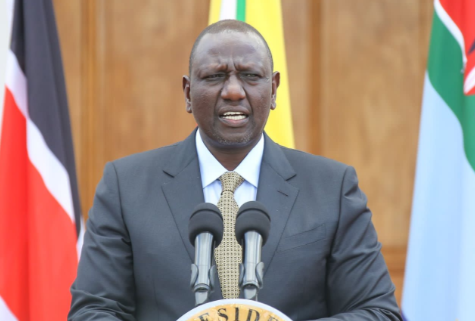President William Ruto has revealed that the government will require Ksh.106 billion to implement the reforms within the National Police Service (NPS), Kenya Prisons Service (KPS) and National Youth Service (NYS).
The police reforms were proposed by a taskforce led by former Chief Justice David Maraga.
During the launch of the police reforms at Lower Kabete, President Ruto said that the funds will be allocated to address key challenges that faced the services; career progression, digitisation of records including police OBs and purchase of new equipment.
Of the total amount, Ksh.22 billion will finance improvement in compensation package for officers while Ksh.37 billion will go to the upgrading of the hardware and welfare reforms and Ksh.45 billion is required to implement modernisation of the services.
The head of state reaffirmed that National Treasury will provided part of the funds while the rest will be catered for by investors.
“We appreciate the considerable financial implications of the full implementation of the changes prescribed by the Maraga taskforce. It is estimated that it will cost Ksh.106 billion to full actualise these recommendations,” he said.
To implement the reforms within the 3 services, the president issued five directives:
a) Ministries and agencies will oversee the implementation of the reforms in the coordination with the National Steering Committee that was recently appointed by Interior CS Kithure Kindiki.
b) Any challenges encountered must be resolved without delay through the committee.
c) Public participation must be included in developing policies and any form of Constitutional changes.
d) NPS, KPS, NYS will be required to complete their modernisation strategies and plans by three months.
e) Treasury is required to ensure funding to implement these reforms.
Further, President Ruto revealed that the government had procured 1,000 e-vehicles for the police officers to enhance e-mobility across the country.
He added that plans were also in place to construct 32,000 houses for the security officers, highlighting how some law enforcement officers often live in deplorable conditions.
“Some of our officers live in houses that are not different from the prisons themselves. That cannot be the case. That’s why we extended the housing program to include institutional houses for our military, police, NYS and prisons,” he remarked.



